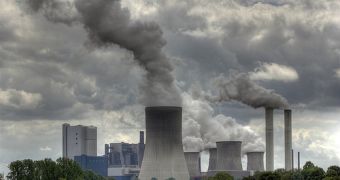On July 16, the World Bank's governing board announced that it wanted to put a leash on the amount of money that was invested in new coal power plants.
The World Bank claims that, from this moment on, companies looking to build new coal power plants will only be given money under “rare circumstances.”
More precisely, the Bank will only support the construction of such facilities when and whether no other more environmentally-friendly alternatives are feasible.
Thus, it will finance the construction of coal power plants in countries whose residents lack access to electricity and cannot afford to rely on a power source other than coal.
“We need affordable energy to help end poverty and to build shared prosperity,” President Jim Yong Kim offered as an explanation for the Bank's decision to continue giving money to companies who wish to set up coal-powered plants in poor countries.
Greenheads welcomed this announcement, Business Green informs us.
They hope that, once the World Bank quits financially supporting fossil fuel plant projects that make little sense, human society's transition to green energy sources will go smoother.
According to the same source, the World Bank is also interested in offering increased financial support to renewable energy technologies and projects.
“Rapidly declining costs are making wind and solar power competitive in some settings, while geothermal energy is a relatively low cost source of renewable energy providing a dependable supply. Biogas- and biomass-based energy also play useful roles,” the World Bank writes in its Energy Sector Directions Paper.
“Sustainable development of run-of-river, pumped storage, and reservoir hydropower projects that meet environmental and social safeguard standards will continue.
“Despite its potential, hydropower remains largely untapped in Sub-Saharan Africa, South Asia, and other parts of the developing world, and for some may be the largest available source of affordable renewable energy,” it goes on to say.
As pointed out by Business Green, the Bank's decisions are consistent with the UN's plans to tackle climate change and global warming by pushing for universal access to clean energy and global energy efficiency.

 14 DAY TRIAL //
14 DAY TRIAL //